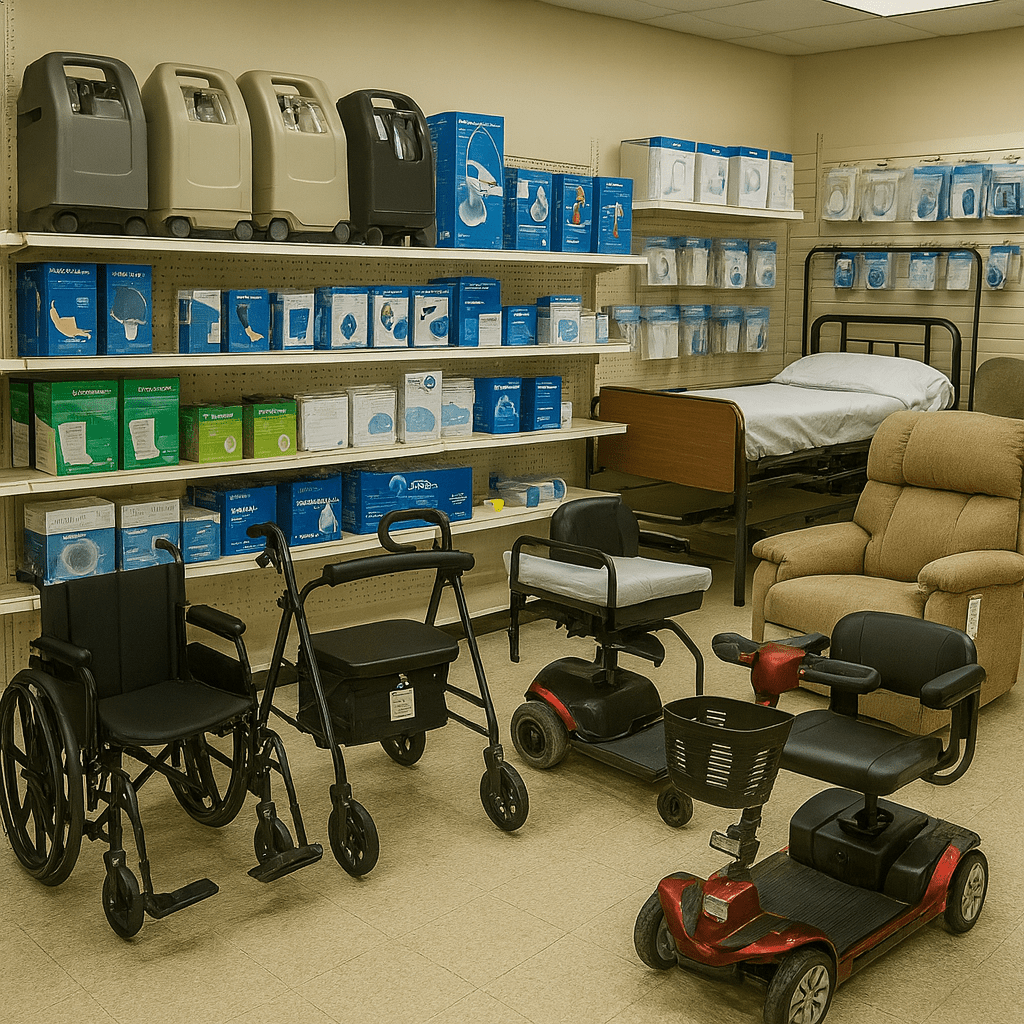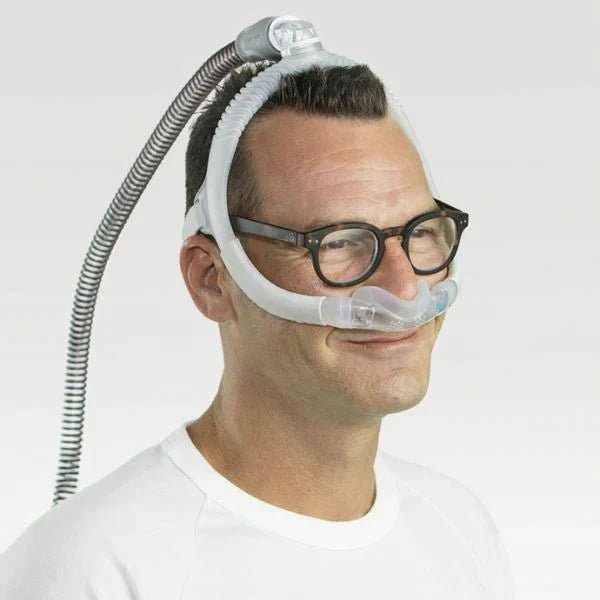Can I Get a Hospital Bed Through Medicare or Insurance?
Introduction: Why This Question Matters
If you’re caring for a loved one at home, you’ve probably wondered:
“Will Medicare or my insurance cover a hospital bed?”
It’s a reasonable question. Hospital beds aren’t cheap. A basic model starts around $950, and advanced models—like hi-low hospital beds, bariatric beds, or luxury-style care beds—can cost $1,150–$6,000 or more.
The idea of having Medicare or private insurance step in and cover some (or all) of that expense sounds like a relief. But here’s the honest truth:
Yes, Medicare and insurance sometimes cover hospital beds, but the process can be slow, and you will need to meet certain conditions to qualify.
As a cash-pay medical supply company, we’ve worked with thousands of families navigating this exact question. We’ve seen what insurance covers (and doesn’t), how long approvals take, and why many families end up skipping insurance entirely to buy the right bed upfront.
This article is a transparent, step-by-step guide to help you understand:
-
What Medicare and insurance really cover
-
What the process looks like
-
The hidden costs and restrictions you may not know about
-
Why more families are choosing to pay cash instead
-
How to make the right decision for your situation
How Medicare Classifies Hospital Beds
Under Medicare Part B, a hospital bed is considered “durable medical equipment” (DME)—the same category as walkers, wheelchairs, oxygen concentrators, and CPAP machines.
To qualify, three things must happen:
-
A doctor must prescribe it.
-
Your physician has to state in writing that a hospital bed is medically necessary.
-
Common qualifying conditions include:
-
Severe arthritis
-
COPD or cardiac disease (requiring head elevation)
-
Neurological conditions (stroke, paralysis, ALS, MS)
-
High risk of aspiration or respiratory distress
-
Advanced mobility limitations
-
-
-
The prescription must specify why a regular bed won’t work.
Medicare wants clear justification. For example: “Patient requires 30° head elevation that cannot be achieved with pillows” or “Patient requires frequent repositioning due to risk of pressure ulcers.” -
You must use a Medicare-approved / private insurance approved supplier.
Not every medical supply company participates in Medicare. You may be limited to a handful of providers in your area or by your insurance.
What Medicare Covers (and Doesn’t Cover)
Here’s where the fine print matters.
What’s Typically Covered
-
Manual or semi-electric beds (head/foot adjust electrically, height by hand crank)
-
Basic spring mattress
-
20% coinsurance after deductible (Medicare pays 80% of approved amount)
-
Rental-to-own contracts (you rent for 13 months, then own the bed)
What’s Not Covered
-
Fully electric beds (height adjustment by motor)
-
Hi-low beds (lower to the floor for fall prevention)
-
Bariatric beds (wider, higher weight capacity)
-
Luxury or furniture-style beds (look like regular beds with wood finishes)
-
Specialty mattresses (foam, gel, alternating pressure—unless advanced wound care diagnosis is documented)
-
Accessories like overbed tables, trapeze bars, or patient lifts
The Process: Step by Step
If you try to get a hospital bed through Medicare or insurance, here’s what it usually looks like:
-
Doctor Appointment – Discuss condition and request a bed.
-
Prescription Submitted – Doctor sends paperwork to a Medicare-approved supplier.
-
Supplier Verification – Supplier checks eligibility and contacts insurance.
-
Insurance Review – Medicare or private insurance reviews request.
-
Approval or Denial – This can take days or weeks.
-
Delivery – Supplier delivers the bed (usually a basic semi-electric model).
The Downsides Families Don’t Expect
Now let’s be honest. Here are the challenges families tell us they face:
1. Long Wait Times
Even if your doctor prescribes it, approvals often take 1–3 weeks. That’s a long time if your loved one is being discharged tomorrow.
2. Limited Choice
Insurance will only approve a basic bed. Families hoping for fully electric controls or a nicer design are disappointed.
3. Rental Contracts
With Medicare, the bed is “rented” for 13 months before ownership transfers. That means you don’t control the equipment—you’re locked into their supplier.
4. Surprise Costs
Even with coverage, families pay:
-
20% coinsurance
-
Deductible balance
-
Delivery/setup fees (sometimes not included)
-
Upgraded mattresses, rails, or accessories (not covered)
5. Poor Service Experiences
Because you’re limited to “in-network” suppliers, service quality varies. Many families feel rushed, ignored, or frustrated with support.
Private Insurance:
Private insurance companies usually mirror Medicare rules. Some require prior authorization (delaying things further). Most only cover manual or semi-electric beds. Very few cover upgraded or specialty models.
Why Families May Choose Cash Pay
Here’s where things change. When families realize the restrictions, many choose to pay cash for their bed instead. At MedEquip Shop, we see this daily.
Benefits of Paying Cash
-
Immediate delivery – Often same-day or next-day setup.
-
Full control – Choose the exact bed you want: fully electric, bariatric, or hi-low.
-
Ownership from day one – No rental contracts.
-
Transparent pricing – No surprise bills or deductibles.
-
Comfort & dignity – Families can choose beds that blend with home décor.
Who Should Use Medicare/Insurance vs. Cash Pay?
-
Choose Medicare/Insurance if:
-
Time isn’t urgent
-
Budget is the #1 priority
-
You’re satisfied with a very basic bed
-
-
Choose Cash Pay if:
-
You need the bed immediately
-
You want a fully electric, hi-low, bariatric, or luxury model
-
You want ownership and control from day one
-
Conclusion: The Honest Answer
So, can you get a hospital bed through Medicare or insurance?
Yes—but only if you qualify, wait for approval, and accept a basic model with limitations.
Should you? That depends. If cost is the biggest concern and you can wait, Medicare or insurance may work.
But if you value speed, comfort, choice, and ownership, then paying cash through a company like MedEquip Shop is often the better path.
Explore our hospital bed collection today to see models available for immediate delivery.
Related Questions Answered
-
Does Medicare cover electric hospital beds?
-
How long does it take to get a hospital bed through insurance?
-
Can I rent a hospital bed without insurance?
-
What’s the cost difference between Medicare and cash pay hospital beds?
-
Why do families buy hospital beds out of pocket?









